On Not Wanting to Rest Content
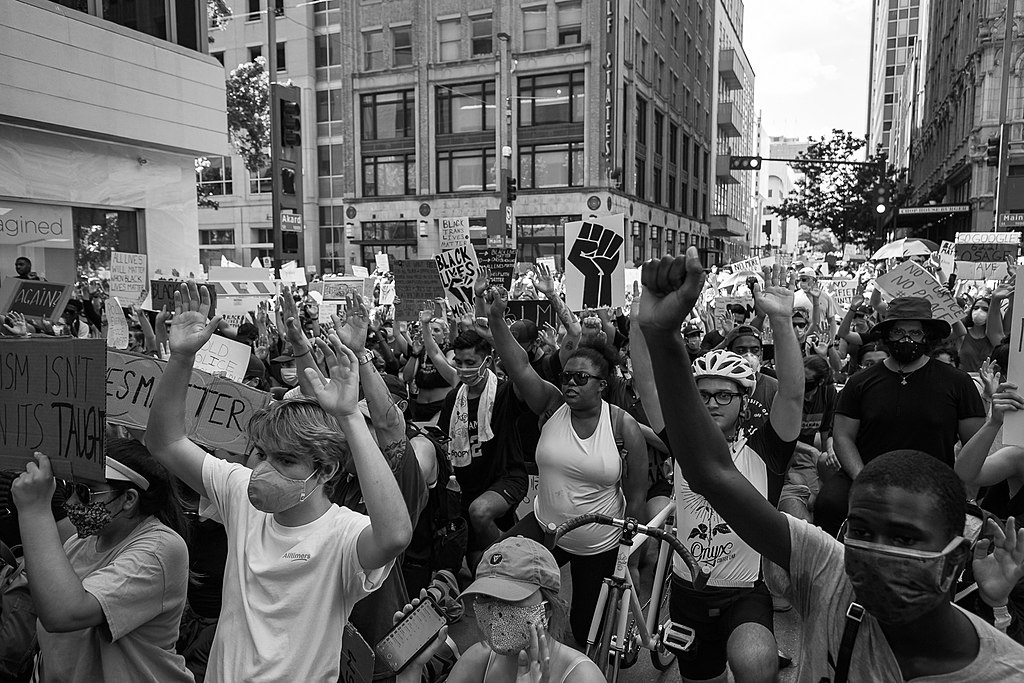
George Floyd Protest Against Police Brutality in Dallas, 6 June 2020. Photo by Matthew T Rader via Wikimedia Commons
If something has a pattern to it, and keeps happening, you would think folks would ask why that pattern repeats. “I am sure,” wrote Martin Luther King, Jr from his Birmingham jail cell to clergyman who were bothered by the demonstrations that had landed him there, “that none of you would want to rest content with the superficial kind of social analysis that deals merely with effects and does not grapple with underlying causes.”
Superficial social analysis is the order of the day some 57 years later. Our day and age spins quickly on news cycles full of effects with little time for causes. Spinning so fast, and with a profound ignorance despite having the entirety of human knowledge available in the palms of our hands, patterns go unnoticed. Too much bobbing between waves of information and events, trying to not drown and be overtaken by the next one, to notice things like the tides.
Contentment with easy answers that handwave the struggle without examining the cause is a dangerous thing.
When the George Floyd incident first happened, you could almost feel where this was going. The makings of a familiar pattern were all there, forming and coming together like some cosmic signal went out to gather the banners of strife and turmoil. Writing some 10 days after Floyd’s May 25th death, I pondered about the sense of the pattern coming:
We know the arguments and excuses coming, because they are the same reasons trotted out every time law enforcement crosses a line. He was resisting. He may have had “potential intoxicants in his system”, as the medical examiner helpfully proffered for the upcoming defense. He was possibly a criminal. He was a perceived threat to the police officers.
All of this said as if resisting while handcuffed and restrained by 3 men while maybe being intoxicated and allegedly being involved in passing a possibly counterfeit $20 bill voided George Floyd’s right to not die slowly face down in the street. Whatever the words Chauvin’s defense will use, his actions tell us what he thought, what a trained officer of the law made of this man’s rights. George Floyd “had rights, but…” and then insert whatever rationalization you please.
It’s a very old tactic for law enforcers to use against people they deem unworthy of equal rights.
I wish I had been wrong.
Now, some three months later, footage from the body cameras of Alex Kueng and Thomas Lane, the first two officers to respond in the George Floyd incident, started making the rounds. An incident that ended with those officers and Derek Chauvin on top of a dead man who was alive when they first met him, a video that went viral, and a country that has been arguing, protesting, and debating issues surrounding it ever since. Footage that shows an agitated, anxious, uncooperative, and clearly not right George Floyd. Footage that came before the now-infamous eight minutes and forty-six seconds of Chauvin’s knee on the back of George Floyd. Footage that proved to be the last five minutes and fifty-three seconds of Floyd’s life, and the two minutes and fifty-three seconds his lifeless form stayed underneath Chauvin.
And yet for some, George Floyd being a uncooperative, drug using suspect changes everything for them.
Rob Dreher, writing in The American Conservative a piece that has already had a title change, several apologies, and — as of this writing — 12 updates added to it by the author, came right out with the sentiment that George Floyd killed George Floyd:
George Floyd did not just resist arrest. He spent at least eight minutes gasping and shrieking and carrying on like a lunatic, all the while refusing frequent, entirely legitimate orders by police. I had been under the impression that they had brutalized him from the beginning, throwing Floyd to the ground and kneeing him in the neck. That’s not remotely what happened. What happened is that these police officers gave Floyd chance after chance to obey. He was high on fentanyl and meth, though he denied twice that he was on anything, but his behavior was completely bizarre. Was it because he was high? Maybe. It might also be because he had four previous criminal convictions, and had done a prison stint for assault and robbery. What brought the cops in Minneapolis out that afternoon was that he was attempting to pass counterfeit bills in a local store. Floyd must have known that given his criminal record, he was going to be in a world of trouble over the fake currency…
George Floyd is dead today almost entirely because of George Floyd. (emphasis original to Dreher’s piece) Watch that bodycam video above (it ends just as he is on the ground with Chauvin’s knee in his neck), and tell me how there is any other reasonable conclusion? All he had to do was obey the police, who gave him chance after chance after chance. They did not come down on him hard, with the neck restraint, because he was black. They came down on him because he hysterically resisted arrest, for at least eight minutes.
The media’s narrative is false. All the George Floyd riots, all the George Floyd protests, have been based on a lie. That lie, though, has become so fundamental to the left’s narrative that disbelieving it will be impossible for countless people.
Watch the video. It really is shocking to realize how badly we have been misled by the media, by politicians, by celebrities, and by activists.
It’s a nice neat package to use such reasoning. George Floyd had it coming, you see, and all the priors that were straining against the collars of restraint about the events surrounding his death can now break free. All the uncomfortable questions can now be safely put back in the box of status quo, with the lid sealed shut with a dismissive side eye at the media and others for stirring up an otherwise peaceful society. As long as the drugs, and bad decisions, and troubled mind of an individual is to blame, then the rest of us can remain content that it is someone else’s problem. The facts have all now changed, the events were all wrong, all must go back to how it was before.
Except for the most important fact: George Floyd still died underneath three police officers, one of which was on his neck. They continued to hold him down for two minutes and fifty-three seconds after he stopped breathing with no urgency whatsoever to render aid. Somehow, we are to believe that the officers knowing he was clearly out of sorts is exculpatory when it is actually damning. Police officers were responsible for George Floyd from the moment they put their hands on him, and suspecting him to be high and behaving erratically should clue them in that a medical event could be imminent. Pre-existing conditions, drug use, erratic behavior, and resisting arrest did not lessen George Floyd’s rights or the police officer’s responsibility to protect them.
A jury will decided the “chance after chance after chance” the officers offered Floyd. The men charged have that right, to a fair trial, to competent counsel and defense, to be judged on their actions by a jury of their peers. Those are the rights for the men involved that lived. George Floyd did not get such consideration, having been determined by those men that “he had rights, but…”
No doubt in the coming trials we will hear another round of the same story that “he had rights, but…” Floyd having illicit drugs in his system will be a recurring theme. His resisting arrest will mean he “had it coming” to some. He was a criminal, so of course the police are blameless. Druggie. Criminal. Resistor. Terms that become a form of othering for a human being no longer with us.
If this was the first time such tactics had been used, it would be one thing. Oddly, the alleged criminal activity of Chauvin is not suggested as a factor, nor the mindsets of the officers, nor their level of training. Why is it the victim gets those questions every time one of these incidents happens? That these themes continue to appear in major racial incidents makes ignoring the pattern impossible.
Ahmaud Arbery was trespassing, you see. He was doing God knows what in that nice neighborhood, not his neighborhood, don’t you know. He didn’t belong here, and Gregory McMichael, Travis McMichael and William “Roddie” Bryan, Jr. were trying to arrest him to stop his crime spree and he just wouldn’t comply and was trying to escape so we had to shoot him, don’t you know…
Why, that Botham Jean had marijuana in his apartment when that poor, confused police officer thought he was an intruder and frantically defended herself by shooting at him twice, hitting him once, and killing him before he could do God knows what to her…
That Philando Castile just had to be shot five times at point-blank range because, per Jeronimo Yanez’s own words “I thought, I was gonna die and I thought if he’s, if he has the, the guts and the audacity to smoke marijuana in front of the five year old girl and risk her lungs and risk her life by giving her secondhand smoke and the front seat passenger doing the same thing then what, what care does he give about me..”
Patterns. More patterns of forcing events into narratives that would let us remain content, and safe, and unbothered.
Never mind that Ahmaud Arbery was — and there is no other word for it — hunted down and lynched because of the assumptions, feelings, and twisted motivations by his killers. Never mind the amount of pot in Botham Jean’s apartment, HIS apartment, was less in weight than either of the bullets Amber Geyger fired at him, having now been convicted of murdering him. Never mind Castile’s body took five bullets without his killer ever seeing a gun, or the other officer even reaching for theirs, but somehow magically knowing marijuana being present meant Yanez was in mortal danger nonetheless.
Most of all, to those folks, the least bit of impropriety renders invalid not only the events themselves, but all the reaction to them that they do not approve of. Or a cause rendered unworthy because of the politics of the believers. Or the disapproval of the manner in which the aggrieved voice their frustrations. Which is also a pattern. All facts must be bent to put everything back into the comfortable box of our priors, least we be forced to re-evaluate anything too hard to deal with. Comfort must be maintained.
Events must be quickly and superficially examined and moved on from. And then those same folks act shocked and shaken at why the cries of injustice just keeping coming back up again, and again, and again. So the fingers will be pointed and the folks who are protesting again and again must be the problem. “We can’t control everything,” they will explain as they wash their hands of the uncomfortable questions.
Perhaps not, but some things are controllable. Perhaps the Drehers of the world could write in a place with “conservative” in the name of it on something very much within each of our abilities to control. The principle of individual responsibility, which at least used to be sacred to the conservative worldview. Such responsibility is quickly slung around the necks of the George Floyds of the world, but somehow doesn’t apply equally to the police officers who stood up unharmed after he stopped breathing, and almost never to the folks in the larger world who pass judgement on such things from afar. Not only that, but Floyd wasn’t just responsible for himself, he was responsible for how everyone else acted as well. What Dreher and others are proposing is the fully-gamed out and logical conclusion to bootstrap theory, that those who refuse to pull themselves up by their own not only have it coming to them, but practically force others to make sure what’s coming to them arrives.
If you are keeping score at home, it took less than sixty years to go from Dr. King’s “cruel jest to say to a bootless man that he ought to lift himself by his own bootstraps” to Dreher’s update of “If George Floyd at any point in that eight minutes had simply obeyed the police’s lawful, legitimate orders, he would be alive today.” Which isn’t even factually correct, since he was already dead for the last nearly three minutes of those “lawful, legitimate orders”.
Is that where we are now? Shall we be content with “comply and live” as the ethos of not only law enforcement practices but of our understanding of complex issues like race, culture, class, and a hundred other things? Are we so gone into the politics of the moment dictating our analysis of all things that we should be comfortable with watching a man die with those sworn to help him as close to him as humanly possible and, as Rod Dreher figures it, a “reasonable conclusion” that George Floyd killed George Floyd?
Hell no, we should not.
Those who point to the bodycam footage as proof they were right all along never tie the threads together — Dreher certainly didn’t — that if George Floyd deserved what he got, and thus the protests are unjustified, they have really tripped over the truth. The truth that George Floyd’s death was a spark that lit a powder keg that’s been building for years. It wasn’t just George Floyd, it was the latest in a long line of things, just so blatant, so obvious, so on video even the moderates had to say “Enough.”
Individual responsibility properly applied means we can parse out tough things, like which protesters are peaceful, which rioters break the law, and which anarchists take advantage for ill reasons having little if anything to do with the cause at hand. That police still have to protect and serve the George Floyds of the world, whether the George Floyds of the world cooperate or not. That there were a hundred things that led George Floyd to be at that place in life that caused his death. Holding individuals accountable so that if they are in positions of authority their standard is higher and they must be held to it, not able to use the failings of others as excuses for failings of their own. While not comfortable, we must recognize years of failing to address issues that should have been confronted generations ago, which means the price of reconciliation will be far higher now that it should have been. The debt has piled up for longer than it should have. We do not have the non-violent protests of King, but that may well be in no small part because we didn’t heed the message then.
Taking responsibility for ourselves and how we act, think, and approach others before demanding the world turns exactly as we see fit from the comfort of our screens is an attainable goal. Responsibility to stop reacting to every viral thing, and take the time to understand the background, and root causes, and reasons that brought us here before thinking the imperfections of others excuses a need to investigate further. Holding the sins of a group against each individual is a two-edge sword that might cut you in places you won’t like if you insist on swinging it. Police still have to protect and serve the George Floyds of the world, whether the George Floyds of the world cooperate or not.
If only we do a few of those things, and do them more than once, maybe some new patterns can develop. Maybe we use the awesome power of technology to dig deeper into causes a bit more and a smidge less for the gratifying superficial responses. Imagine making things a little better, a little at a time, until someday you realize things are getting better. My, how comfortable that must be.
Then we can be content. But not before.
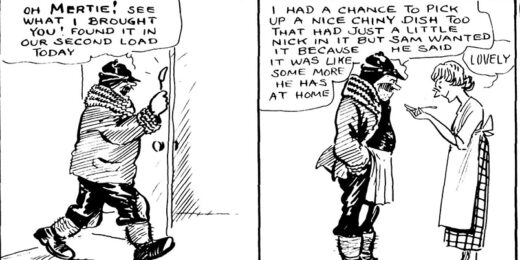




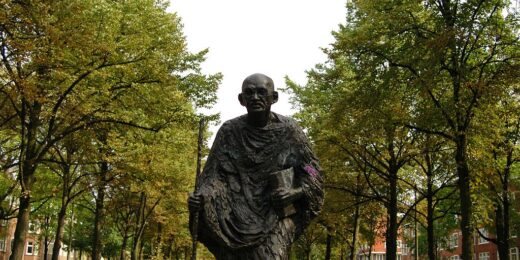

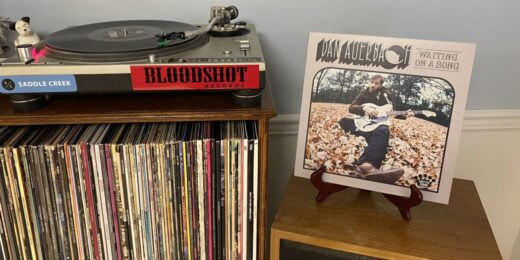



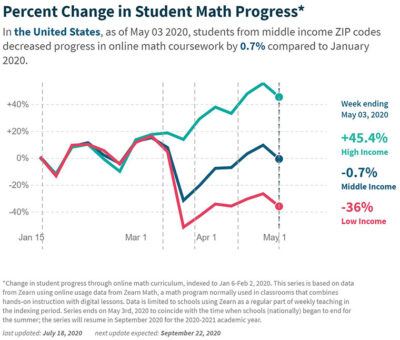
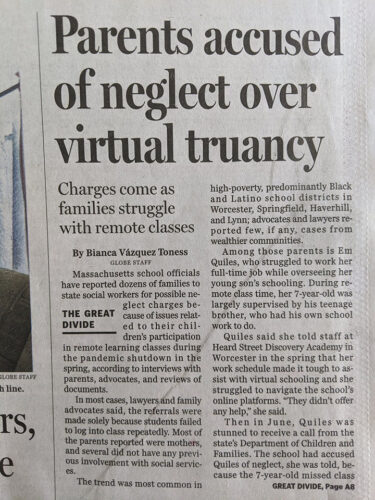


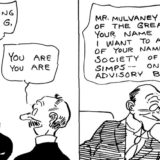
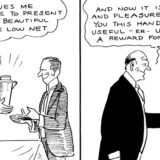

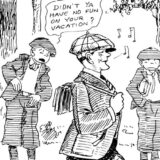
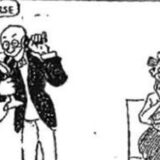

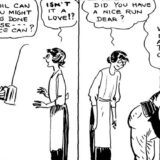
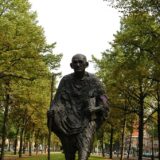
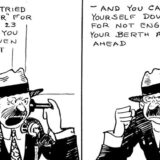






I, a white man, have supreme confidence that had I been pulled over, acted intoxicated, and not been able to coherently cooperate with the cops, I would have got thrown in a drunk tank, been made to pee into a cup, and maybe been charged with a DUI or sent to drug diversion. While surely not pleasant, none of those things would have resulted in my death.
I would have survived my hypothetical encounter with the police that wound up killing George Floyd in reality. That may be my privilege as a white man, but more to the point, the disparate result fell to Floyd to bear, and the black man’s is a deadly burden.Report
As I have pointed out again and again—with data, not anecdotes cherry-picked by narrative-driven journalists—the racialized story you’re telling here is pure fantasy.
The rate of police killings per 100k arrests is roughly constant across races. The primary demographic risk factor for being killed by police is sex: Men of any race are several times more likely to be killed by police than are women of any race, even when controlling for arrests. In raw per-capita terms (not accounting for arrests) white men are killed by the police at nearly ten times the rate at which black women are.
If you get arrested, I recommend that you be on your best behavior, because your skin color won’t do a thing to protect you, and your sex is actively working against you.Report
White serial killers go to jail and go to trial black guys not doing anything go into the ground.
cops are not judge dredd. you don’t get to kill somebody for being difficult. Cops aren’t even supposed to kill guilty people.Report
I’m kind of busy right now and don’t have time to explain why you should be ashamed to have made this comment, so I’ll give you ten hours or so to redeem yourself by writing a self-rebuttal before I go to town on it.Report
Yes, statistically cops kill more white men then black men. There are more white men in the US then black men.
That’s never been the point. Black men are killed by cops at a higher proportion relative to population then white men.
And that aside, its not the job of cops to decide to kill anyone. Its the job of cops to determine if a crime was committed and effect an arrest. Too often the start with something really bad must have been done so we must over react, especially if its a black man.
“Risk is highest for black men, who (at current levels of risk) face about a 1 in 1,000 chance of being killed by police over the life course.” https://www.pnas.org/content/116/34/16793Report
“Victims were majority white (52%) but disproportionately black (32%) with a fatality rate 2.8 times higher among blacks than whites. Most victims were reported to be armed (83%); however, black victims were more likely to be unarmed (14.8%) than white (9.4%) or Hispanic (5.8%) victims.” -https://www.ncbi.nlm.nih.gov/pmc/articles/PMC6080222/
“The key point is that not all encounters with police are equally deadly. In any given kind of encounter with the police, a Black person can be likelier to be killed than a white person even if the overall rate of deaths per encounter appears lower for Black people. This would happen because Black people have many more interactions with police in non-deadly situations — a dynamic exacerbated by racism. And all those extra encounters dilute the rate.” – https://www.bostonglobe.com/2020/06/11/opinion/statistical-paradox-police-killings/
https://www.statista.com/statistics/1123070/police-shootings-rate-ethnicity-us/Report
Once again, on the faulty logic of using “data” to describe a relationship;
We also know, from the thousands of filmed encounters with police during the protests, that in any encounter with the police, the police themselves determine whether to escalate or de-escalate.
An encounter which is escalated becomes part of the “data” that people cite; one that is de-escalated doesn’t.
When a cop encounters a sleeping white man in a car then lets him sleep it off, there is no record, no data point that people can cite.
When a cop talks an armed and agitated white man down to peacefully surrender, there is no “shooting” which people can point to.
“Data” is not a good picture of the world we live in unless it also is corroborated with personal experience because the issue here is the relationship between black people and the white majority.
Millions of black people report that their encounters with police are routinely escalated from peaceful to violent. And we now have video documenting the police doing this very thing.Report
Agreed. And video is qualitative data, which in the science world is perfectly fine. I just tend to default to peer review since I’m a scientists. and last time I check the National Academies and NIH are top shelf scientists. Whose data backs up the growing video evidence.Report
Both sets of data are objectively true but reflect a different perspective. And Chip’s desire to simply tell stories is also, to a certain degree, true. They all differ in which is the narrative that we want to be dominant. Every one of those data points takes us in a different direction, tells a different story. We simply haven’t determined what, as a society, is the direction we want to go.
And that is the political struggle.Report
Brandon:
You know the evidence, and I don’t, although I have heard of the claim you cite. I suspect that the racialized story is not “pure” fantasy and that there’s something to it, even if it’s not the whole story. There might also be something to the evidence you cite. I’m just saying hat maybe other evidence challenges that evidence.Report
And as we have pointed out again and again, this is imply not true.
https://www.washingtonpost.com/opinions/2020/05/29/heres-why-we-dont-see-protests-when-police-unjustly-kill-white-people/Report
– BLM-indoctrinated prog Radley Balko (who, like everyone else on that side of the debate, doesn’t know how to properly interpret statistics.)
Add: I understand the concept of a collective delusion but it strikes me as a bit *deluded* itself to think everyone who argues the CJ system disproportionately negatively impacts black people suffers from one.Report
Again the question is: What was the point of the arrest?
I mean, I literally don’t know. No one seems to have said it. It’s weirdly left out of Dreher’s piece, too, where somehow situation starts _mid-arrest_, which is a very strange place to start.
What was the supposed reason for the arrest? I still don’t know. A supposedly fake 20?
So…the reason to pull a gun and point it at someone’s head for a non-violent offense is…what? Exactly?
Like, they hadn’t questioned him. In fact, he hadn’t really been properly identified. Someone alleged that _waves hand_ that guy over there tried to pay with fake money, and…how the _police_ think that situation should move forward is _astonishingly_ different than any sane person would think.
I ask the same question about what happened here in Georgia, where the sequence of events is a bit clearer with Rayshard Brooks:
A man is discovered asleep in a car in the drive-though of a Wendy’s. He is somewhat out of it and will not move the car. The police are called.
The police arrive, get him out of his car, take his information, and give a breathalyser test. He blows over the legal limit for driving…driving which he doesn’t appear to have actually been doing. As far as I know, you can’t just arrest someone parked in their car on private property for a DUI, no matter how drunk they are.
At this point, he asks to walk to his sisters, who lived nearby.
And then vague ‘things happened’, including him getting tased, and then stealing their taser and trying to use it, failing, and getting shot because ‘he had a dangerous weapon’ (Which was out of shots and the police knew it.) that people attempt to justify on the part of the police, all while ignoring the fact:
This guy hadn’t really a committed a crime in first place. I mean, in theory, he sorta trespassed, I guess, by not leaving the property immediately ‘when asked’ by Wendys, because he was passed out. And he left his car in a drive-though which…is not technically illegal but could result in towing.
But where is the actual literal crime to arrest him for? What are the supposed charges?
Somehow this thing that is only a crime in vaguest possible sense, and really only seemed to need the police because this guy was blocking a drive-through, suddenly turned into an arrest Brooks was fighting…and we’re focused on whether the police were ‘allowed’ to do what they did because he was fighting of arrest, and we forget to ask ‘How did we even get here?’
—
Both these incidences have something in common: A black man under the influence of something freaking out _when the police try to detain them_, and all the discussion about this seems to ignore the fact the police literally had no reason to detain either of them in the first place. There was no _start_ of this.
Also, asserting that the police have the right to kill black people who freak out during their arrest _because those black people are worried they are going to be killed by the police_ seems to be the most goddamn absurd Catch-22 in history.
Especially when the police have IN FACT silently murdered black people who went along with them. I remind everyone of Freddie Gray.Report
A man is discovered asleep in a car in the drive-though of a Wendy’s. He is somewhat out of it and will not move the car. The police are called.
The police arrive, get him out of his car, take his information, and give a breathalyser test. He blows over the legal limit for driving…driving which he doesn’t appear to have actually been doing.
If I were going to defend Rayshard Brooks against the charges of driving drunk, I would have put these sentences further apart.Report
I would love to hear you defending him getting the death penalty for a DUI essentially.
I mean if we’re just making assumptions about what other people are saying.Report
I wouldn’t. I’m against the death penalty.
Mostly because I don’t trust the state to not screw it up.Report
…did you miss something?
Being drunk _asleep_ in a car is not the same as driving, which is a pretty major requirement for ‘driving under the influence’.
Now, you can be charged with a DUI on private property in Georgia. However, you have to actually be operating the motor vehicle, though, and not just _sitting inside_ it.
You can assume he drove there drunk if you wanted before they opened. But you’re going to have a lot of trouble with that court case without any witnesses, though.Report
Oh, and before we do the ‘But he might have the ignition turned on’, I actually went and looked that up. Here’s the crime in Georgia:
O.C.G.A. 40-6-391 (a) A person shall not drive or be in actual physical control of any moving vehicle while:
(1) Under the influence of alcohol to the extent that it is less safe for the person to drive;
(2) Under the influence of any drug to the extent that it is less safe for the person to drive;
etc…
Apparently, in Georgia, you have to be driving (or ‘in actual physical control’) of a _moving_ vehicle to get a DUI. You not only can’t get a DUI just because the key is in the ignition, you can even theoretically start the car and put it in gear as long as you don’t release the brake.Report
In CA you can get a DUI for that. And I am pretty sure that is the case throughout much of the United States. In Georgia it is termed as being in physical control of the car, which is being inside the car with possession of the keys. It sounds stupid, but this is the result of zero-tolerance policies that most states have enacted over drunk driving. Or the possibility of drunk driving. It doesn’t matter if you are asleep, fornicating, or just staring into space, if you are in a car that you have the ability to make move, and you are over .08 (.04 if you have a commercial license, or .01 if you are under 21) it is a DUI.
I urge you to read that law again and try to figure out what ‘moving’ means in ‘moving vehicle’.Report
And, to clarify: There’s no special definition of ‘drive’ or ‘driving’ in the law.
There is a special definition of ‘driver’, which says ‘every person who drives or is in actual physical control of a vehicle.’ So ‘drivers’, in GA law, are a broader category than people think, and include some people who are not currently ‘driving’.
However, the DUI law then goes out of its way not to use that definition of ‘driver’! It could have said ‘A driver shall not:’, which would have included anyone in physical control of any vehicle, moving or otherwise. It did not.
It instead defines its own thing that require either ‘driving’, or the vehicle they’re in control of to be explicitly moving….or possibly always requires the vehicle to be moving regardless, it’s slightly unclear how that ‘or’ is supposed to work. It’s also unclear what exactly they mean by ‘driving’. But, lacking any textual definition, it should have its generally accepted meaning of at least having the car turned on, and possibly in gear.Report
Read section A. Notice the word Or.
To recap, A person shall not drive or be in actual physical control of any moving vehicle
Notice that drive is listed, and notice that physical control is listed. Notice that both are listed in a way that either can be a DUI.
A car is a moving vehicle, whether moving or not. See, you don’t have to be driving to be in control of the moving vehicle, as they are listed separately. Otherwise, you couldn’t get a DUI if you were pulled over, as the vehicle wouldn’t be moving at that time. So, as they cannot have that be the case, as every drunk would just stop his car, they list both conditions.Report
Aaron is correct. Additionally, .08 bac is just a legal threshold that Proves by definition guilty of dui in Georgia. Georgia is a zero tolerance state and can charge dui even if the bac is below the legally defined guilty level of .08.Report
I will say in Ontario you can’t be asleep in a car while intoxicated if the keys are anywhere nearby. I’ve heard of people throwing the keys under the car before sleeping inside and being okay.Report
It gets a little more ‘grey area’ for me when the temps are below freezing, but laws are generally pretty blunt instruments.Report
A car is a moving vehicle, whether moving or not.
“For the purposes of this section, the term “moving vehicle” shall be defined as any vehicle regardless of whether it is moving, stationary, broke down, junked, or in parts.”Report
What legally defines a firearm? A gun, or a receiver?Report
“For the purposes of this section, the term “firearm” shall be defined as any mechanism, natural or manufactured, by which missiles can be projected at targets, and shall include, but is not limited to, manufactured hand guns and rifles, slingshots, robotic catapults, and human arms.”Report
Weirdly, asserting things doesn’t make them true.
The distinction you think there is actually just covered under ‘vehicle’ : “Vehicle” means every device in, upon, or by which any person or property is or may be transported or drawn upon a highway, excepting devices used exclusively upon stationary rails or tracks.
There’s also a ‘motor vehicle’ and ‘all-terrain vehicle’ and a few other kinds. ‘moving’ is not one of the types of vehicles.
As there is not any special legal definition, ‘moving’, under the law, is just the common definition of moving.
Again, other parts of the law do not include the qualifier ‘moving’, including the literal definition of ‘driver’. Thus the qualifier MEANS SOMETHING in the DUI definition.
Ah, yes, it sure is a giant loophole that you can just stop doing crimes as soon as the police see you and, since you are no longer committing the crime, they cannot arrest you.
Let’s ignore the fact that, of course, most people who charged DUI are, in fact, not in the car at the time, and thus, under your logic, no longer driving!
That is…incredibly dumb logic on your part.
The _reason_ they list ‘both’ is that you can can be in control of a moving vehicle but arguably not ‘driving’ it.
For example, if you’re riding a motorcycle or bicycle, that is not generally called _driving_ (Especially not with a bicycle!), so would not otherwise be included under a law that only mentions driving.
Wow, that was super easy to come up with an example for!
That is why the law defines ‘driver’ as people who either drive or are in physical control of a vehicle regardless of what that control is generally called, because otherwise you have people argue what ‘driving’ means, and they often have a point.
Other, less obvious examples of controlling a vehicle that aren’t included under the normal definition ‘driving’: Pushing a car with the engine off. Controlling a car from the passenger seat. Starting a car without moving it. Even, oddly, carrying a bicycle, which I’m not entirely sure is the intent.
And if the law didn’t include ‘physical control of a vehicle’, courts would have to deal with those sort of arguments about what ‘driving’ is. But vehicle is defined under the law, and if you physically control one, you are a ‘driver’ under the law.
Which, again, this is not the wording that DUI uses, which requires driving or being in physical control of a _moving_ vehicle.
Just because other places have really stupid laws don’t assume Georgia does. You are just assuming Georgia has the same moronically-broad laws other places have about DUIs.Report
I assume Georgia has stupid laws because every state has stupid laws. If you want to try to argue a judge out of a DUI with the circular logic that you seem to apply to everything, go right ahead. But I am gonna stand by what I and every DUI lawyer in Georgia said.Report
lol
“offisher, you ‘parently ‘ntend to gimme a shy-tation fer Drunk Drivin’. Howev’r, O.C.G.A. 40-6-391 Section A clearly states that it applies t’a moving vehicle, and as y’kin plainly shee this here vehicle ain’t movin’ no more on ‘count’a being smashed up ‘gainst a big ol’ cow, therefore ah–hol’ on a minute–” (BLUURRRGGGGHHH) “Whew-hoo! Anyway as ah was sayin’, ah res’ mah case.”Report
One thing to consider is this: the vehicle did not magically appear in the drive thru lane (or wherever it is). You can still get a DUI in a stopped vehicle if the cops can prove that the only way it got there was because you drove it there, and did so while under the influence. In the case of a drive through, probable cause is pretty strong and it would be fairly easy to prove dui based on timeframe and witnesses.
Explanation from a Georgia attorney:
https://www.duigeorgia.com/parked-car-duiReport
Yeah, I read that last night, and it confirmed what I thought, and that it comports with CA DUI law.Report
I missed the part where he was in the drive-through rather than, say, in the parking lot.
If I were going to argue “he wasn’t driving the car! He was asleep!”, I’d prefer to have his car be somewhere that he could arguably have stumbled into while drunk.
Like a parking lot.
Rather than in the drive-through.Report
‘While drunk’? You think people can’t drink in cars?
Alcohol-based DUI is defined as one of two different things. It’s operating a vehicle _either_ unsafely due to alcohol, _or_ operating a vehicle while the amount of alcohol in the blood is over a certain amount.
They have literally no way proving the first without some witness. (In fact, that’s hard to prove in general.) So that leaves the second.
To prove that, they would have to show he was over a certain level while operating the vehicle. The problem is…they have no timeline of when he was operating the vehicle, beyond ‘after Wendy’s closed’, nor did they watch him to make sure he didn’t drink more either there…or leaving and coming back.
Thus they have no evidence that his BAC was over the limit while operating the vehicle.
Hell, we don’t actually know he was the one who drove there! We have no idea if he’s operated that vehicle at all.
Circumstantially, he probably committed a DUI _if_ there is no empty alcohol containers in the car. (Which we have no idea of.)
However, legally, there was literally no case here for DUI, with the evidence they had, and that fact is _obvious_. The only way they could possible convict him is if he stupidly says ‘I drove here and then didn’t drink anything else’, and then his breath test convicts him.
But, then again, the system doesn’t try to convict anyone anymore. The entire thing is set up to make them plea out.Report
He was in the drive-through.
I don’t know why you see that as irrelevant.
I’m not saying the cops were right to do what they did to him.
But the argument that we can’t know whether he was driving is closer to “we can’t know whether or not we’re asleep and dreaming” than it is to “reasonable doubt”.Report
I mean, you want to say “he shouldnt’ve been shot”, you’re right, but saying “there was no reason for the cops to be there” isn’t true, and insisting that it is makes the argument be about the wrong thing.Report
Even using “de minimis” as a standard, I’m not sure that drunk driving counts as de minimis. I’m actually pretty sure it’s not to the point where I’d need to hear why we’d need to go back to attitudes about drunk driving that I heard in the 80’s.Report
I was looking for Sam Kinison but Bill Hicks does as good a job here:
Report
You get to audition for your freedom.
Damn, spot fecking on.Report
One would think that the police have no authority to arrest a person who hasn’t entered a public roadway, but AFAICT, that isn’t how judges read the law.
In fact, it appears that judges and legislatures assume that being drunk in a car with the keys accessible is all that is necessary.
What is that legal term for taking action against someone because you think they are going to do something bad, before they actually do something bad? I see it all the time in 1A/free speech cases?Report
Well, there’s public and there’s *PUBLIC*.
Which implies both private and *PRIVATE*.
Being drunk in your car in your driveway? Well… I can see how that’s a grey area.
Being drunk in a parking lot at Wendy’s? I can see how some other people might see it as a grey area to the point where they’d see it as worth a shot to foist the burden of proof onto someone else.
In a drive-through?Report
Fine, so he gets a trespassing charge.Report
Technically, trespassing requires _you_ to refuse to leave, not you refusing to take your vehicle with you.
Refusing to move your vehicle is just…a good way to get it towed. (Also, considering he was over the limit, he legally _couldn’t_ take his vehicle with him anyway, or drive it at all.)
He actually, once awake, was perfectly willing to leave by walking, and in fact asked the cops if he could.
I’m not quite sure what the fuzzy area around ‘not actually awake so can’t process the request to leave’ is, but trespassing laws aren’t some magical vampire uninvite rules where you have to leave the millisecond the words leave their lips or you’re an immediate criminal, and I find it rather dubious someone could actually be charged with trespassing for ‘waking up slowly’, especially if it’s in a place the public is generally allowed to be so you have to be specifically excluded…like a drive-in lane.
And under Georgia law, you can be charged with a DUI on private property, but we have much less stupid DUI laws than a lot of places apparently do, as sleeping in a car with the keys on you is not covered.
To get a DUI, you either have to be ‘driving’, which is not further defined so we take the standard definition which involves at minimum a running engine, _or_ you have to control a moving vehicle. (Which is intended to get around people claiming they are not driving their bicycles, but riding them, or not driving their car but merely pushing it with the engine off, and other semantics arguments about ‘driving’.)
The law notable does not cover the ‘operation’ of a motor vehicle, or someone merely in ‘control’ of a stationary vehicle. It requires either actual ‘driving’ or actual ‘moving’, both of which are not further defined under the law so mean what they sound like.
Scroll up to see my pointless argument with Aaron David who refuses to believe that laws can be not-stupid.Report
Oh, and it turns out he was seen driving up and got in line, so that doesn’t actually matter…the police had a reasonable justification for a DUI charge.
And I know that me being wrong about that seems very important…although this was, again, the police escalating something into an arrest that didn’t really need to be one, although that’s actually just how we do all DUIs in this country (Despite absolutely no one arrested for DUI is an immediate danger to anyone once, you know, they get taken home and are no longer driving.), so it’s…most understandable?
Or…just…the problem is at a systemic level of how we treat certain crimes via arrest despite there being no reason we couldn’t just charge them and leave the person in place. Instead of a problem with the individual police trying to arrest someone for something they can’t prove…well, the ‘trying to arrest’ problem was policy, the ‘killing him’ is probably not official policy. (For decades now)
…but…I really can’t help but notice no one addressed my other point: Black people freaking out during arrest because they believe the police will murder them seems a _very_ dubious justification for, uh, letting the police murder black people during arrest because they’re freaking out.
It doesn’t actually matter how justified any arrest is…there’s an absurd catch-22 there.
Like, everyone just skipped right over that bit.Report
Oh, wait, I see the problem, you are assuming that the police should understand the laws they are enforcing.
Sorry, nope, most of the judiciary is perfectly fine with the police only understanding the law in broad strokes, and seem to think that getting arrested and held for up to 48 or 72 hours is all hunky-dory, even if you haven’t technically broken any laws.
Let the details of the law be argued by the lawyers.Report
Fine, so he gets a trespassing charge.
And we’re back to Duck’s eloquent point above:
Report
hey, look at it this way, he could conceivably have driven the car across state lines, therefore under Wickard v. Filburn they have the right to restrict his behavior!Report
Under Wickard, the fact that he had consumed alcohol makes it interstate commerce in the first place.
And that’s without getting into the issue of how buying Wendy’s is interstate commerce.Report
The police weren’t called because there was a drunk guy sleeping in the parking lot, they were called because he passed out in the drive-thru lane and that pissed everybody off. That’s a definite DUI.
He attacked the officers (with a lethal weapon under Georgia law) because that would be his second DUI arrest on parole, and that would mean he would go to jail, go straight to jail (no bond), and go there for several long years to complete his earlier sentence.Report
It’s kind of hilarious how everyone wasted their time arguing with DavidTC, given (as many of you have pointed out) that he’s manifestly ignorant of a huge amount of case law around DUI that’s pretty much countrywide. in short, the objection he’s making is completely settled, yet you guys are trying to convince him anyway, instead of laughing at him.
I’ll just laugh at him. And say y’all made very polite points.Report
Are you a lawyer? I’d be interested to hear what you base your second sentence on. IANAL, but as I understand it, arrests for DUI in a parked car are not uncommon and are based on a deduction that the driver was driving drunk prior to parking the car. In this case it seems like a pretty straightforward deduction — I would think the defense would’ve had the bigger challenge to explain why he would’ve parked the car sober in the drive-through lane, and only then started drinking.Report
Ohh.. as others have already mentioned. Sorry for the clutter (including this apology).Report
Theoretically, but remember, the defense doesn’t have to prove shit.
It is the state that has to prove BARD there was no other way for the car to have gotten where it was except that he drove it there while intoxicated.Report
You have a guy arrested who was driving and seems to be either high or mentally ill. That’s self explanatory on the face of it.
Him driving there (drunk), stopping, and passing out can be assumed.
If the car was there for hours without him then it would have been towed. If the car was there with him drinking in it then then getting him to move it would have been trivial or the cops would have been called before this point. If the store were in the process of opening then customers wouldn’t need to be driving around him, ergo the store has been open for a while.
Parking your car in the drive thru instantly gets the cops involved.Report
Yeah, I checked. The video shows Wendy’s was open. The 911 call was by one of the employees. The police showed up before 11pm. I looked at another Wendy’s hours in that city and their drive thru’s is open until either 11pm or midnight.
So we should assume he drove there while drunk and then passed out. If he weren’t dead he could try to fight that claiming… he was parked there for hours?Report
If he was seen driving up by other people and got in line, then, yes, that was a DUI. I was not aware there were other people there at the time, I thought people had started driving around him the next morning.Report
He got shot at 11:30 PM… after dealing with the police for at least 40 minutes.Report
Part of the problem is that the police have 51% cover from pretty much every corner of the political spectrum.
It’s not that there isn’t anybody who thinks that the cops shouldn’t change. Of course they should change.
It’s just that this group says “the cops should change like *THIS*” and the argument comes back that, no, this is the good part of the cops. They really should change like *THAT*.
We should cut funding, no we should increase the training budget.
We should abolish the police, nobody is arguing that we abolish the police.
We should at least get rid of police unions, no, labor unions are good, we should fire the bad cops but keep the cop union.
And so on and so forth.
The status quo is maintained.Report
Part of the problem is that regardless of whatever reform you institute, the rank and file police have no incentive to change their behavior, because QI or their Union will make sure that consequences will not adhere.
Thus I no longer believe that “More Training” will fix anything, because training requires that the police face serious consequences from deviating from that training (they don’t). Add to that the fact that the public isn’t really allowed to see the training the police get (operational security, doncha know, don’t want the bad guys to know our super secret squirrel techniques!).Report
When I used to read about medieval society and their barbaric punishments, I used to wonder at what sort of people they were, who would pack the town square to watch someone be sliced open and dismboweled while alive, or burned at the stake.
What sort of person watches a person screaming in agony and begging for mercy, and feels not a drop of pity or sympathy? What sort of conditioning did they have that would bring them to this point of callous indifference?
Rod Dreher is modeling for us how this happens. He is showing us that he can watch the long video of a man being suffocated and begging for mercy and feel utter indifference, like watching a butterfly as it is pinned to a board, flapping its wings helplessly.
This is the part where a lot of people would pivot to pointing out his overweening religiosity and make the connection between his religion and its history of cruelty.
But Rod has famously been a religious seeker, moving from one religion to the next; Its not like he has some deep loyalty to any one faith or creed, he sheds them freely when they don’t work for him.
I think he is demonstrating that principle that people first map what their desires are, then seek out a scripture or holy man who will tell them what they want to hear.
He has been seeking out this sort of thing, a structure that will elevate his comforting worldview and leave him blissfully unchallenged, while savagely compelling all others to bend the knee.Report
What I would do if I saw someone in such dire straits from fentanyl and meth is to follow the guidelines for saving an overdose victim.
That second step could be illustrated by a picture of Chauvin and Floyd (actual illustration is in the PDF). Chauvin took the additional step of protecting Floyd against further injury from the seizures and grand mal seizures that are a side effect of Naxalone, as he’d no doubt been instructed because he explained the reasoning about seizures to one of the other officers – who’d thought that the side position was normal for helping overdose victims.
And that’s why Chauvin has pretty close to a 100% chance of acquittal. If your actions are completely indistinguishable from the actions of someone intent on saving the person’s life, following the best available medical advice, a murder charge just isn’t going to get past a jury.Report
You do know that to normal sane fully coherent people, lay him on his stomach is not equivalent to kneel on his neck for two more minutes then he is breathing?Report
Kneeling on his neck just keeps him from cracking his skull if he has a grand mal seizure. A person could kneel on your neck like that for hours because there’s nothing there to hurt, and nothing was hurt – according to the autopsy.
The back and sides of the base of the neck is one of the toughest parts of a mammal’s anatomy, including ours. A common way to carry very heavy loads all day is to suspend them from a pole and then balance the pole on the back of the neck. Carrying a heavy load in a bag all day is also commonly done by hanging it from a strap that runs around the back of the neck, or to the side with a strap that runs around the side of the base of the neck. There are no martial arts techniques that apply pressure to the back of the neck because it would be pointless. The only vulnerability there is to hit the base of the neck with sufficient percussive force to break the spine.
We know they gave Floyd Naxalone because Chauvin told his fellow officer that the stomach-down position with the head to the side was to cope with the resulting risk of seizures. The fact that they did that, and called an ambulance, and then quickly upgraded the priority for the ambulance to one of lights and sirens, shows they were reacting to a drug overdose. If they wanted to kill someone who was dying from an opiate overdose, why did they give him Naxalone? Why did they then follow the protocol for dealing with a drug overdose, including protecting Floyd from the side effects of the emergency treatment? Why did they continue to follow the recommended procedure of holding him there until the ambulance arrived – if they were trying to kill him?
You take those facts in front of a jury and you’re no longer debating murder one or murder two, you’re discussing whether the officer used the best lifesaving techniques, or whether he should’ve gone further and used CPR during a pandemic.
The problem is that the narrative was framed by the very stupid person with the camera phone who was harassing Chauvin. That person would likely scream at a lifeguard for using a “choke hold” when bringing someone to shore by the usual technique of dragging them to shore by a strong hold across the front of their neck. The result of that intentional misframing of the incident has resulted in the deaths of a whole lot of innocent black people, the looting and destruction of countless black-owned businesses, and likely set black economic development back by decades. If the narrative continues, it will likely result in an additions several thousand innocent black deaths per year, for many more years.
But it allows elite whites to morally posture and preen on the Internet while destroying black lives, so I guess it’s all good.Report
Positional asphyxiation is a thing. Thousands of medical professionals disagree with you.
Kneeling on a neck demands that you focus on the person you are kneeling on and take care to keep them alive. Chauvin failed that, he is the direct cause of death. This is the kicker, once the cops put their hands on you, they are responsible for keeping you alive.Report
I’m embarrassed for you, George, that you have now mashed the “reply” button on this deliberately obtuse argument not once but twice now.Report
That is the argument that the prosecution will be unable to counter. You might as well get used to it.Report
I think it is extremely likely that a jury will acquit him of most or all charges. Not sure I would if I was on the jury (there clearly appears to be at least wanton brutality, even if not manslaughter), but it is tough to say. No way thirteen Americans convict a police officer in this situation of murder.
I will further predict that Biden will be president, and that all the rioting and looting scum will take again to the streets (Along with millions of peaceful protestors). Once again, police brutality and lack of accountability (legitimate) will be “gaslighted” by the media as some kind of systemic racism (total BS).
Mayors in liberal cities will again let the looters “run riot”, but this time Trump won’t be there with a need to maintain a semblance of order under his watch. Therefore armed conservative troublemakers will take to the streets “protect themselves and their property”, possibly with a wink and A nod from the exPresident’s tweets.
The rest will be total mayhem. Of course it will be spun as peaceful BLMers against evil white supremacists.
It is probably past time to buy a gun and a really big pickup (I own neither). Definitely time to get the hell out of Minneapolis, Seattle, Chicago or Portland (I gladly left)Report
Why the really big pickup? Because they’re harder for a mob to flip over?Report
Yeah, I read somewhere that big ass trucks are selling well because the Perception that the mob can’t stop them as easily.Report
I know I am harshing on George here, but honestly, I wouldn’t give up breathing waiting for Chauvin to be convicted.
That cop in Mesa walked and frankly, his case was even more damning. I was surprised as hell that Guyer was convicted.Report
The amusing thing about these guys arguing that Chauvin will be exonerated is that it makes the reformists case for them.Report
Actually, I agree somewhat. We need deep reform. Cops shouldn’t do that, and there should be severe consequences if they do. That doesn’t mean it was murder of course.Report
“That is the argument that the prosecution will be unable to counter”
The defense will never bring that argument up, because I’m assuming the defense is made of competent lawyers.
If they do, the prosecution will simply ask for any evidence that “kneeling on someone’s neck” is, in any part of America, considered proper first aid for someone having a seizure. They’ll ask where it’s listed in the training manuals for first aid — by cops or anyone.
And it won’t exist, because only a complete moron or a bald-faced liar would assert something so stupid as “proper emergency medical treatment of someone having a seizure is to restrain them” — in fact it’s the opposite.
You’ve been told that, and you persist in such stupidity.
It makes me wonder at your character, George.Report
On top of that, as I’ve pointed out: George Floyd was asking them to stop. Last I checked, you can’t give someone medical treatment against their wishes. That’s assault.
It’s almost surreal that George’s supposed defense (Which, it should be pointed out, is something the right-wing echo chamber made up and is not actually being used.) is:
‘Chauvin wasn’t trying to do his duty by restraining suspect, he was instead committing both medical assault and medical malpractice.’
Attempting to refrain this as ‘medical care’, might, for people dumb enough to believe that, make it _sound_ better…
…but stepping outside of ‘I had to do this as a police officer for safety’ would actually be a _horribly_ stupid legal position for Chauvin to take, stripping him of his qualified immunity, and at that point he’s a rando who ran up to someone and assaulted him with unwanted and incorrect medical treatment. Whereupon the victim then died during that treatment.
Which is, again, why Chauvin isn’t claiming this, despite that gibberish the echo chamber has invented and George uncritically repeats.Report
My housemate, who’s a top notch criminal attorney who loves putting a jury in a box, says a lawyer should never ask a question unless they already know the answer.
In this case, all the defense attorney has to do is quote EMS and ER personnel.
Ambulance folks say they try to keep the patient unconscious until they get to the hospital, so as to avoid crazy violence en route.
It’s not about my character, it’s about medicine, policing, the law, the courtroom, and a jury.
Now note that as soon as the testimony has gone from “the narrative” to the best practices to counter the medical side-effects of Naxalone, the prosecution has lost the criminal case. Perhaps if the defendant was charged with some kind of medical malpractice, they might have a chance with a civil suit, but that’s not what they went for.Report
In addition to all the other points brought up: DO NOT RESTRAIN PEOPLE HAVING SEIZURES. That is not what you should do, and is EXTREMELY DANGEROUS.
I can’t believe people are passing around this medical malpractice like it’s a goddamn fact: https://www.cdc.gov/epilepsy/about/first-aid.htm
Literally the first thing not to do is ‘Do not hold the person down or try to stop his or her movements.’
Can we some sort of rule against this being repeated uncritically? People repeating that ‘holding down someone having a seizure is a reasonable thing to do’ is not a political disagreement, it is dangerous medical misinformation that can cause serious injury if people believe it and attempt to restrain people having seizures.Report
And, while we’re at it…we know he wasn’t having a ‘grand mal’ seizure (Aka, Generalized Motor Seizures), because he was talking. Not only is almost everyone not self-aware during such seizures, but one of the first things that happens during those seizures is all the muscles stiffen, including the vocal cord and lungs, which makes it extremely hard to speak, so even the people who do remain self-aware can’t do it correctly. They _might_ be able to make some random sounds, they certainly cannot form words during this type of seizure.
They also find it very hard to breath, I mention that completely randomly without trying to make any sort of point at all, because surely no one has ever suggested you should kneel on top of someone during these. Turning blue is actually fairly common due to lower oxygen.
Making sure people haven’t completely stopped breathing is, in fact, one of the only reasons you should ever interfere in a seizure.
George is basically doing the equivalent of trying to justify someone punching someone else repeatedly in the throat, while the victim begged them to stop, because ‘the victim was choking’.
That’s the most wrong treatment for choking possible, and, oh, also, the victim wasn’t choking! Which we could tell because they were asking the puncher to stop!Report
He knew that. I told him last time he uttered that idiocy.
And I’d know — I had my first in the 1990s, and I learned darn quick what the proper first aid was because, well, EMT’s demonstrated for my parents and they told me.
The only time you restrain a seizing patient is if they’re in danger of a serious fall, and even then only to the absolute bare minimum. You don’t put something in their mouths, you don’t hold them down, you don’t restrain them. If they’re in danger of banging their head on something you pad that area with cloth, or let them batter your own hands or forearms instead of whatever hard surface is there.
That George would repeat this stupidity again, after being corrected once, is pretty damning.
He’s either a fool or thinks we are. And he deploys such transparent and obvious BS in the defense of murder.Report
Oh, he’s been corrected more than once, because I’ve corrected him too.
For people who aren’t aware why this is actually dangerous…not just pointless, but dangerous: Normal muscle operations has limits on it…people can sometimes get around those limits and lift up cars and other stuff, but your brain won’t normally allow you to do that because it can damage muscles. Your brain shuts down your muscles well before they get damaged.
But the random signals sent in a seizure are not restricted in way normal signals are. They have my-kid-is-trapped-under-my-car strength…or at least _can_ have that, often conflicting muscles are trying to operate so nothing is happens, but they can have that.
So why you can’t hold someone against the ground to ‘protect their head’ is obvious. Either you aren’t actually going to manage it, they’ll be able to shove it up for a moment and _you’ll_ shove it back down and hit it on the ground…or you will manage to hold them down, which means they can sprain the muscles in their neck, or WORSE, trying to move their head. Because, again, they don’t have the limits that muscles are supposed to have.
And that’s true of any restraint…either they can break out of it, or their muscles will use their full power pushing against something that is not moving, and thus they will injure themselves that way.
Everyone: If you _really_ need to stop someone from doing something extremely harmful during a seizure, like fall off a balcony or something: Pull them away. Or give them a shove. Grab an arm and drag them if you have to, then let them go. Move them elsewhere as best you can, without limiting any of their moments.
Don’t jump on top of them and hold them down, or try to wrap your arms around them. On top of everything I’ve said, that’s a good way for you to get injured also! Oh, and panic someone who is coming out of confusion of the seizure.Report
“Kneeling on his neck just keeps him from cracking his skull if he has a grand mal seizure.”
That is the second time you have vomited for that utter stupidity.
In no training manual on god’s green earth is there the phrase “restrain someone having a seizure by kneeling on them”. That you would say this, with a straight face, means one of two things: You’re either a damned liar or an absolute fool.
The way you treat someone having a seizure is, in fact, to back the hell off. You do not attempt to restrain them in any way unless they are in danger of a serious fall. You do not put something in their mouth. You don’t put them on their side. If they’re in danger of cracking their head on something, you pad it with cloth or with your own limbs rather than restrain the person having the seizure.
This has been the absolute, bedrock, basic standard of emergency care for seizure victims since at LEAST my very first one — way back in 1994.
Why you repeated this lie is beyond me. You’ve been corrected before on it. Do you think we’re that stupid? or are you?
And not even a good lie — a bad lie. A lie of such stupidity, of such clear and ugly casualness that it’s obvious the liar isn’t even trying to convince anyone of the lie.Report
Gotta go with Philip here, the EMTs would not be kneeling on his neck and carrying on conversations with other officers, etc. They’d be paying attention to the person in their care.Report
There was nothing further he could do by monitoring. Floyd is ODing and suffering from underlying medical issues, including heart problems and Covid. The officers have almost certainly given in Naxalone, as per Minneapolis police policy and their subsequent actions and conversations. Short of CPR, which probably was forbidden by someone up the chain due to Covid concerns, all they could do is wait for EMS.
They likely don’t carry epinephrine, much less a big needle to inject it into the heart ala “Pulp Fiction”, so the next step is to just sit, wait for the ambulance, and watch for an ambush by the gathering angry crowd that in a few short days would be bent on looting, arson, and murdering police officers. Blame Heisenberg, but in this incident the observers are playing an out-sized role in the results of the experiment, by forcing the police to focus on crowd control and force protection.
So next comes the trial. On top of the aforementioned issues, It’s a safe bet that Chauvin and Floyd were friends because they knew each other as coworkers and the papers aren’t filled with local folks talking about how they wanted to kill each other. So Chauvin will likely take the stand and when asked what he was feeling as events unfolded, will probably say “Deep deep sadness and helplessness because my friend was dying from his long-term drug problems and there was nothing more I could do.” Unless his defense attorney is wildly inept, I don’t think they could even make a negligent homicide charge stick.
The press of course won’t report much of this because it flies in the face of the narrative they established, and after an acquittal we’ll get vastly more violent riots where scores of black people will get killed – and CNN’s rating will shoot up. This will not surprise most Americans, based on today’s Knight Foundation survey of opinions about US media. They have created a world where the response to Humpty Dumpty cracking his shell and dying despite the best efforts by the king’s horses and men, is — a mob burning London to the ground.Report
I’ll say this again, positional asphyxiation is a thing. The fact that cops don’t want to believe it doesn’t make it so.
When a person tells you they can’t breathe, you need to stop doing what you are doing. If Floyd was such a danger to himself or others, you cuff him, and release the pressure on the neck until he stops complaining about not being able to breathe.
Cops do not get to decide someone is lying about that stuff. Or rather, they do, but if they are wrong, they get to stand trial.Report
His breathing complaints had nothing to do with his neck, they had to do with the fentanyl. Check the videos. He was saying “I can’t breathe” from almost the time they approached his vehicle. He was saying it when he was standing and talking to them. He was saying it when they tried to put him in the back of the police cruiser. His complaint was one of the many clues that he was suffering an opioid overdose. Reacting to that, they gave him Noxalone, called an ambulance, expedited an ambulance, and put him in the recovery position recommended for everybody who can’t breathe because they’re having an opioid overdose.
The pressure on the back of the neck does not effect breathing. It’s just like applying a half-hearted half Nelson, where the only real risk is eventual starvation. Hundreds of millions of people sleep in that posture, often with a dog or cat on their neck. It’s not what led to his death, but the misunderstanding of it is what lead to many hundreds of other deaths in the riots and crime sprees that followed.Report
Again, medical pros disagree with you. Paramedics I know disagree with you.Report
No, wait, I got it — you’re BlaiseP!Report
We could be so lucky!Report
The pressure on the back of the neck does not effect breathing.
I realize this is not *science*, but I just tried this and it checks out. I pressured the back of my neck with my finger tips and my breathing was fine.Report
You could try another experiment. Lay your neck across something like the arm of your couch and watch TV all day. Did you suffocate at any point? That’s about 15 to 20 pounds for a big guy.
Then you can go order a barbell neck pad so you can more comfortably put hundreds of pounds of weight on the back of your neck during your strength training. To date, no power lifter has ever suffocated from it, and no doubt Chauvin’s defense attorney will show the jury pictures of the ridiculous amounts of weight that people in gyms carry across the back of their necks.
So the prosecution has two problems with the neck theory. One, it doesn’t cut off someone’s breathing, and two, the coroner said George Floyd didn’t die from that. When the prosecutor can’t establish that the thing they claim Chauvin did that constituted murder was related to the cause of death, what will they do? They could cast around and try to say that Chauvin’s failure to perform CPR was the cause of death, or the stomach-down recovery position was the cause of death, or the side-effects of Noxalone on a hypertensive patient was the cause of death, but how do you get a murder case out of that?Report
One of the reasons we can’t have nice things is our tendency to turn every incident into an easy tale of good and evil. The tough reality is that many, maybe most, of the people the police deal with are indeed guilty of some crime. Contra Dreher et al, it does not follow that the police are therefore justified in all manner of violence, escalation, incompetence, and callousness. The agents of the state must be universally held to high standards of conduct and making excuses and rationalizations for them is to the detriment of all.
But I would add that the childlike veneration of every person mistreated by the police and rationalization of misconduct, some of which you see in these comments is just the other side of the same coin. Instead of a conversation about sound public policy which must account for all the warts and difficult realities, it’s all about heroes and bad guys. There’s no progress that way.Report
“The tough reality is that many, maybe most, of the people the police deal with are indeed guilty of some crime.”
Assertion without evidence.
https://www.npr.org/sections/live-updates-protests-for-racial-justice/2020/08/05/899364727/sick-to-my-core-aurora-police-chief-apologizes-after-black-family-is-handcuffedReport
And your anecdote is unresponsive to both my assertion and the argument made by Dreher. In the age of mass criminalization virtually everyone is guilty of some crime, especially possession of contraband or another minor infraction. Three felonies a day, etc., and that’s not even getting into the situation in places like west Baltimore where crime really is rampant.
By pointing to something like that you’re making the same categorical error as the cop worshipers. The question isn’t what we do with people we can prove are innocent. It’s what we do with people who aren’t, and why we shouldn’t apply the rubric designed for rare, life and death encounters to every routine interaction. That’s what let’s the police get away with murder and gives cover for most of the excuses for it.Report
Ah, I see, my bad, I misunderstood the point you were trying to make.
To riff a bit off of Burt’s statement up above, I think the problem we have is that police are WILDLY inconsistent when it comes to dealing with people suspected of a crime.
Case in point.
By all rights, that guy should be dead. Good on those police for exercising care and restraint. I almost hesitate to dig through the records of that department and those officers to see if this is a fluke, or a pattern of good policing.
But back to my original, perennial point, the fact that consequences never adhere to officers means we never get rid of officers who have a pattern of not showing care and restraint.
We have 3-strikes laws for criminals, I don’t understand why we don’t have them for cops.Report
This is rather the crux of the problem. Policing is an essential service, yet our policing (and criminal justice system) need reforms. Still, we have criminals and need justice. The point that I think Dreher completely bungles is that Chauvin is executing Minneapolis police policy. The horror isn’t Chauvin, it’s that this is what *we* want.
The former Mayor of Minneapolis, Betsy Hodges, has it right:
“Whether we know it or not, white liberal people in blue cities implicitly ask police officers to politely stand guard in predominantly white parts of town (where the downside of bad policing is usually inconvenience) and to aggressively patrol the parts of town where people of color live — where the consequences of bad policing are fear, violent abuse, mass incarceration and, far too often, death.”
The “problem” which I think the trial will illustrate is [likely] that Chauvin was executing Minneapolis Policy and “over charging” him with Murder is a bad political move because it isn’t bad actors its bad Policy… and it’s Policy people (liberals even) want. Which is an oblique way to say… Minneapolis policy makers need to be put on trial along with the officer(s). But we can’t really put Policy or Policy Makers on trial… that requires political reform. And reform is hard.
Which is why, maybe counter intuitively, I’m supportive of Portland or any other locality experimenting with radical police reforms… abolish, even. Now, I’m 99% certain that abolishing will fail [if it’s ever even attempted] but radical reform/rebuild?… well that will have costs and hopefully some gains. But that’s what reform is… balancing real costs with real gains. And it should be local, not national because the political will to do better in Minneapolis should come from the liberals in Betsy Hodges’s constituency. And I say that *hopeful* that they do better; hopeful that they can hit on a better Policing policy that is also effective and just. Hopeful that lessons learned and successes achieved can be avoided/replicated in other locals. I’d rather a 1000 CHAZ’s [sorry, CHOP’s] than one “National Conversation” that does nothing more than make meaningless symbolic changes to sports.
But, the dirty rotten secret is the problem isn’t the Police, it’s us.Report
That Betsy Hodges Opinion piece landed with a thud, no? I read it when it came out, even linked to it here. She’s 100% correct. White people, especially Good White Liberals, just don’t wanna have their bubbles burst.Report
Reform the police, but don’t take away my ability to call them on a black person who yelled at me for having my dog off leash in the wrong part of the park.Report
“People like that moving into our neighborhood would cause problems. Not for me, of course. I’m not a racist. But some of my neighbors are….”Report
Making racism “low status” was a great way, on paper, to get people who believed in social status to be against racism.
On paper.Report
Did it ever.Report
Related to this point:
Police as revenue collectors.Report
Sure, then all you have to do is deal with a 23% revenue short fall… Nothing more taxes can’t fix.
Then, one wonders with all the taxes I’m paying, how come I can’t find any parking and why are all these assholes abusing the commons by parking downtown all day?
Of course, it gets even more complicated if we decide we can fine those people over there or fine those people over there for coming over here to use our commons – either way – to cover our revenue shortfalls. But one would think that’s an even *easier* sale to fix with increased taxes. Right?Report
I think ‘defunding’ the police is misguided in a similar way as withholding funding from schools with bad test scores. It misunderstands the problem in a very profound way and almost certainly worsens the issues it’s trying to solve.
I am however open to the idea of slowly disbanding existing forces as new ones are stood up operating under different standards and principles. Maybe that gets us to a point where there isn’t this constant tension and violation of rights. Of course after that you may have to start looking into the socio-economic drivers and cultural dysfunction in those places the newly reconstituted police will be operating, which is a whole other can of worms.Report
“Defunding the Police” strikes me as being a way to say “Nothing At All Would Be Better Than This”.
And, lemme tell ya, I have a great deal of sympathy for the idea that “not doing anything would be better than this”. It’s my attitude toward a handful of things out there.
Would not having cops be better than this?
You might be tempted to think “yes”, but then remember the CHAZ/CHOP…
But anyway, defunding the police is one of the ways to say that, hey, the last 15 times this happened, we increased the budget and it’s still happening.
Maybe we should try the opposite of that this time.
Which, given the last 15 times, ain’t an obviously wrong way to think about it.
(But remember the CHAZ/CHOP…)Report
It is worth reminding people that what they _think_ the police do, prevent crime, stop active crime, and solve crime after the fact, is a tiny fraction of that the police do.
https://www.nytimes.com/2020/06/19/upshot/unrest-police-time-violent-crime.html
Somewhere around 40% of police time are spent dealing with things that are clearly not crimes. At all. Just..not crimes. A large chunk is just ‘people complaining about random things’ and ‘doing welfare checks’, and another chunk is ‘showing up along with ambulances for no actual reason’.
If we limit police to just ‘crime stuff’…literally all crime…that’s just something like 60%. And that percentage includes ‘proactive’ crime prevention _and_ a bunch of driving around for traffic duty.
We do not need armed police for traffic duty, and and we don’t really need them for proactive crime prevention…some of that is just ‘having someone make check business doors to make sure they didn’t get left unlocked’ and some of it is…frankly, the sort of harassment we shouldn’t be letting police do, usually of minorities or the homeless.
For the actual solving real (non-traffic) crimes, it’s somewhere under 30%.
So, let’s pause here and realize that…the ‘policing’ part of police, if we split out the the actual crime bit of the police, it would be a third the size, and we could use people who are both cheaper, and who do not think guns are solutions to problems, or even have guns.
—
So that just leaves the crime solving. Which is where it gets interesting: The police are _extremely bad_ at crime solving. Like, really, really bad.
Something like 10% of burglaries get solved. Only about a third of rapes do. More than half of murders get solved, somewhere around 60%, so that’s…good news, I guess? (OTOH, murders are pretty rare compared to other crimes.)
Note this is ‘solved’, not ‘convicted’. Like, a suspect is identified and usually charged, or identified and the case is eventually closed due to lack of evidence. And this is assuming that the suspect was correctly identified.
Honestly, the police are often very bad at even _trying_ to solve crimes, which I can prove with three words: untested rape kits.
You know what the police are good at? Waiting until near the end of their shift, locating someone that they can plausibly make up a crime for, arresting them, and then filling their paperwork after their shift so they get paid overtime. Yes, really. It’s an extremely common practice, and easy to prove, too: The amount of arrests near the ends of shifts is much higher than it should be, often with the people not charged, or even really a plausible crime.
—
Now where is some hypothetical possible argument that some of what the police do is needed to be done by armed officers, that we do need a ‘police department’.
But there is no possible argument that the people we have now are every vaguely the correct people to have doing them. Because they are, again, very very VERY bad at THOSE things.
And this can’t be of ‘bad apples’. This has to be some sort of structure problem with the entire concept.
For example, I could make an entire post how the people trying to _solve_ crimes need to not stake out a position on the _adversarial_ system of justice our system uses, they should be neutral people that attempts to collect evidence both for and again the guilt and innocent of everyone. Instead of what the police do, which is sorta guess the most likely suspect and find evidence they did it, and mostly not bother to find any other information unless it is shoved in their fact.
Like, police working with prosecutors, in addition to causing the problem that prosecutors won’t charge police officers, is actually a problem the other way: People who actually investigate crimes should not be ‘taking sides’, they should be neutral investigators. Like there’s this absurd thing where prosecutors often don’t share information, despite being required to, and no one seems to ask the question: Why the _hell_ is the _prosecutor_ the only person being given information? Oh, it’s because the system is set up where the police and the prosecutor work together and the police are on the prosecutor’s side. Huh. What a shitty way to try to find the truth.
But it’s late and this is long enough.Report
Well, Brother Oscar wrote an excellent post on restructuring the police entirely.
I think that we do need to radically rethink the police. I think that we do need police (CHAZ/CHOP, etc) but that the police need to be hyperlocal (like, live in the community they police), they need to ignore de minimis crap entirely, and… well, yeah, pretty much everything in Oscar’s list (any quibbles I have are just that: quibbles).
We need cops.
We don’t need *THESE* cops.Report
I prefer to think of it as reducing the scope of what activities require an armed response.
Like the BID Safety teams I mentioned downthread, the majority of encounters are the sort of things you would see on the TV show Cops: Just unruly transients, domestic fights, petty vandalism and shoplifting stuff.
Very little of it needs an armed response, much less the militarized posture we see.Report
I think something like that is probably part of what I’d think a reconstituted police force looks like. And to Jaybird’s point above, if the arts district wants to be the CHOP-CHAP whatever I think that can probably go on for awhile without the apocalypse. Eventually the people with day jobs will get tired of 4 AM drum circles and wanna-be commissars. It’s self-correcting.
But how about the real bad parts of town where a few hundred people are killed every year and there is real intimidation and violence?
I imagine those people saying ‘we want good cops that maintain order but are professional and held accountable when they cross the line.’ The nice, well meaning rich people on the other side of town say ‘We hear you loud and clear, we’re getting rid of the cops!’ See the problem there?
I also think the idea that we’re going to solve what ails those places by sending in a bunch of nice ladies with sociology degrees is more than a little naive. And that’s as someone who supports more investment in those kinds of services! A close friend of mine did social service work in Baltimore city. She lasted a year and describes the experience as being like the movie Candyman except the horror movie version of the projects was sugar coated. It is not for the faint of heart and the people who live there haven’t heard about critical theory nor do they always take kindly to people seen as police auxiliaries coming to meddle in their lives.
This is not a defense of the status quo, just an acknowledgement that it’s a problem that defies easy answers. I know ‘defund the police’ is intended as short hand for a bunch of policies. I worry though that the slogan sounds like an easy answer and when push comes to shove it will be the easy answer that wins out, and solves nothing.Report
I get more than a little irked at these “Urban Wasteland” descriptions of the “bad parts of town” which are invariably offered by people who don’t actually live there.
Yes, I get it, there are neighborhoods where gang violence is high and social pathologies rampant. Got it. GOT IT.
But these places, and I mean places like Compton, South Central, Boyle Heights are also places where a lot of very well mannered law abiding families live. Even in the very worst neighborhoods, the crimes are committed by a very small number of people.
The problem with the Urban Wasteland rhetoric is that it leads directly to the Military Occupation model of policing where the residents are assumed to be hostile aliens who must be crushed into submission.
There is a vast territory between Military Occupation and “nice ladies with sociology degrees”. The idea that these are our only choices is itself a naivete, a delusion that with only more violence can the violence be brought under control.
No one wants stable order more than the people who live in these areas. But stable order requires trust and cooperation and a community.
Those things are political and sociological problems, requiring work and effort by the entire city. As many others have mentioned, even good liberal people shy away from solutions that require us to do work and make sacrifices. So its easier to just try to impose order with violence.
Peace, as it turns out, does not flow from the barrel of a gun.Report
I understand that and I’m fully on board with getting away from the occupying army model. What I’m also saying though is that any solution that doesn’t account for the groups that do commit violence and disruption to the economic activity that exists in those places is doomed to fail.
I don’t think we need guys in combat gear kicking in doors and tossing every kid on the corner or approaching quality of life crimes like it’s going to erupt into a gun fight. I do think that if you allow corner stores to be robbed with impunity and open air drug markets to erupt into turf wars calls to return to the old way will become so deafening that we go full circle. Keep in mind many of those communities were fully in favor of cracking down. The growing consensus today that the old approach failed is not set in stone and there’s no reason we can’t snap right back.Report
Speaking of self correction a bunch of self-described BLM supporting, progressive business owners have filed a lawsuit against Seattle for being abandoned to the CHOP CHAP.
Young white men wielding guns would harangue customers as well as Mr. Khan, a gay man of Middle Eastern descent who moved here from Texas so he could more comfortably be out. To get into his coffee shop, he sometimes had to seek the permission of self-appointed armed guards to cross a border they had erected.
“They barricaded us all in here,” Mr. Khan said. “And they were sitting in lawn chairs with guns.”
Read the whole article. If this is what people believe is the actual alternative to the police reform is dead.Report
A few things:
1. I agree with the OP. Well said.
2. Alan Jacobs has a very good response to Dreher’s post and a follow up post. It was through reading Jacobs’s blog that I learned of Dreher’s post in the first place.
3. I decline to watch any of the videos or the body cam footage of the murder. The main reason is that if I do, there’s a decent chance I’ll react the way Dreher does. I’d be wrong to do so, but I envision bringing whatever priors I have and blame the victim or (for many intents and purposes the same thing) gainsay and therefore partially justify the actions the police officers chose. And again, I’d be wrong to do so, but it’s likely I would choose wrong.Report
I have a comment in moderation, possibly because I include two links. Is it possible for someone to release it? (I don’t know if I have permission to release comments and if so, if it’s kosher to release my own or not.)Report
Nothing currently in moderationReport
(I freed it.)Report
Thanks!Report
I suppose that We, As A Society, have to shoulder much of the blame as well. How many corners do we want covered by regulation? How many areas do we want it to be possible to do something wrong? Like, wrong to the point where it’s appropriate for police to interact with us?
Eric Garner is always a great example.
Everyone, it seems, agrees that there should be rules about whether you should be able to sell loosies. Eric Garner sold loosies. Hey, sometimes you want just one cigarette. You buy a pack, you’re going to smoke the pack. You want a single? Well… there have been times where I’d have been willing to pay a buck for a single cigarette. (Keep in mind: I came up during a time where cigarettes were a buck a *PACK*. They were a nickel each! Take two puffs then throw the rest into the street!)
Well, of course, there are regulations about whether it’s okay to sell loosies. And, of course, it’s not. What if Eric Garner tampered with them?
And so it was appropriate for the cops to know him as a low-level law breaker.
My argument is something closer to “we need to get back to the idea that de minimis non curat lex” (or “the law does not concern itself with trifles”). Which means that if Eric Garner wants to open a pack of smokes and sell me one for a buck, that’s a trifle.
And the cops shouldn’t have seen what he was doing as something that they’d have jurisdiction over.
The problem is that if you’re in favor of having police out there enforcing laws at all (and I’m sure that post CHOP/CHAZ, even the most willing to entertain “anarchy” have had second thoughts), you’re then struck asking questions about George Floyd or Rayshard Brooks.
Is counterfeit money “de minimis”? How’s about drunk driving?
And then we can have conversations about whether police ought to be social workers, or whether there ought to be two (or three) police forces, or peelian principles of law enforcement…
As it is, we find ourselves in a place where there’s nobody to call except the police if you find a guy who falls asleep, drunk, in the drive-through of a Wendy’s.
What about the option of commandeering the car yourself and then driving him to a parking spot under a tree, giving the keys to the manager, and letting him sleep it off? Well, there are too many things that could go wrong. How would you get him out of the car? What if he wakes up and thinks “THIS GUY IS TRYING TO STEAL MY CAR!”? What if he wakes up at 4 AM and the keys are in the Wendy’s and he just wants to go home? So on and so forth.
Safer to call the cops.
Less trouble to call the cops.
Let the cops take care of it.
That’s their job.
So we have offloaded our own responsibilities to each other off to the cops, we have pretty much abandoned any concept of “too small for the cops to trifle with”, and find ourselves surprised that the cops treat a guy trying to pass off a $20 the same way they’d treat someone who was caught attacking another person.
And we keep being surprised that we make things like “selling loosies” illegal and then seeing the cops choke a loosie seller until the loosie seller dies.Report
Here in downtown, each neighborhood has a BID (Business Improvement District) which is equipped with a Safety Team, unarmed people who walk and ride around and handle de minimis things like homeless people, altercations, or vandalism.
https://downtownla.com/the-dcbid/safe-and-clean
They act as the first line of response for things which don’t need an armed violent response. And the thing is, the vast majority of what happens in any community are just these sorts of minor encounters.
And most of the encounters could just as easily have been escalated from nonviolent to violent, if the team chose to do so. A sleeping transient refuses to move, for example. The unarmed safety team spends time talking and cajoling instead of confronting and coercing. And in almost all cases, the matter ends peacefully.
In my neighborhood we have a lot of Eric Garners who live; that is, guys who violate de minimis stuff but never become part of the data stream of “crime” because their encounters are peacefully resolved.Report
And the thing about de minimis crimes is, well, great, “nobody should die for selling loosies”, “nobody should go to jail for selling raw milk”, and that’s great, but what about the people who do follow the rules? Do they get some kind of benefit for doing that? Are they just suckers? If selling loosies were legal then Eric Gardner would’ve had to find some other corner hustle because stores would’ve already been doing that.
And the thing is, the reason people call the cops is so that there doesn’t have to be a situation where This One Guy Is An Asshole To His Neighbors. It’s the impersonal third-party machinery of the law, and we can all continue with the fiction that we like each other really it’s just that sometimes people try to push and get smacked back (a fiction that’s vital for surviving in urban environments.) Like, it’s not that people are scared of responsibility, it’s that they’re scared of screwing with the person who might come back at two AM with a can of gas and a vengeful gleam in his eye.Report
If someone is so drunk that he passes out in the drive thru, then society takes a dim view to him driving to that spot.Report
We have replaced our moral structure with a legal code.
We don’t think smoking is good, so we attempt to tax it to non-existence. But, as not everyone shares those morals, and they want to enjoy a smoke every once in a while, someone will sell loosies. When I smoked, if I was in a bar people would constantly ask to buy a smoke. A quarter, a dollar, whatever. Was I the bad guy? The pusherman? I guess so… But the reality was I was just a dude with a pack of Camels.
In trying to remove the moral code and replace it with a legal code, we have lost the basic reason why such a thing has force to begin with. We are trying to enforce OUR morality without the hard work of convincing others of its importance. Everyone thinks murder is bad. Stealing too. Cheating on your husband? Maybe not illegal but still bad. But coveting? False idols? Whose morals are those? When do they become an issue with real-world consequences?
The legal system is no different. We all want drunks to not drive cars, but at what point is someone drunk? Two beers, or .08 BAC? We feel it is important to be able to defend ourselves, but when does that fall into murder? When someone points a gun at us, or after they pull the trigger?
Morals vs. laws.Report
If you’re so drunk you’re passing out, then you shouldn’t be behind the wheel. No matter where you want to draw the line, the Wendy’s guy was far on the other side of it.
Similarly Floyd was so high he shouldn’t have been driving.
Eric Garner was a professional low level criminal. Make something legal and he’s out of a job because there won’t be profit in it so he’ll find something else to do.Report
Excellent post, Andrew.Report
Thank you OscarReport
That said, I do recall saying the narrative would turn. I’m impressed it took 3 months, rather than 3 days, but they will try very hard to turn it.Report
Another thing to consider is how the legal system is set up to control the sort of harms that only poor people do, while ignoring the harms that rich people do.
For example, any violation of law is met with a demand for instant compliance, or else violence is used.
Except…not always.
If a cop demands a person “move along”, any refusal is met with violence.
If a court issues a subpoena, refusal is met with a long sequence of legal orders, court hearings, but almost never violence.
I may have mentioned this before, but what if we had a “Stop & Frisk” for white collar crimes?
Like, what if a roving team of forensic accountants and lawyers could, without a warrant, without probable cause just walk into any bank or corporate headquarters and rifle through their records searching for evidence of fraud of malfeasance?
This sounds bizarre and Orwellian, which is my point.
Doing the same thing to a kid walking along a street seems perfectly normal, but why? We, collectively have internalized this notion that “High” people should be treated with gentleness and deference, but “Low” people can be treated with any level of violence.Report
“a roving team of forensic accountants and lawyers could, without a warrant, without probable cause just walk into any bank or corporate headquarters and rifle through their records searching for evidence of fraud of malfeasance”
I’d like to introduce you to the SEC (public companies or companies with securities issued) and the office of the comptroller (for banks) which can and on a regular basis do request pretty much any records they want from the company/bank whenever they decide to do a review, because the entity has agreed to not allow criminal malfeasance as part of their registration/charter.
It is a very broad mandate for both those regulatory bodies and they do in fact trawl for those very things you mention, in a semi-equivalent sort of way.Report
I appreciate the reference to the SEC but the fact is almost all of what corporations do is hidden behind a veil of secrecy.
How many of the bankers involved in the 2008 crash went to jail?
How many non-bank corporations get investigated this way?
Has anyone seen Trump’s real estate transactions with Deutche Bank?
Why did HSBC Bank admit to laundering money for terrorist organizations, yet no one was ever indicted, let alone convicted of a crime?
The bigger point here is that our legal and criminal justice system is given vast power to act against street crime, that is, the sort of crimes that street people do.
Yet the crimes that powerful people do are not treated with the same gravity, and never given the same level of funding or resources.Report
It does not feel the same really but corporations are punished through fines, not jailed. Sometimes put out of business, which I guess would be sort of the equivalent thing? Sometimes senior leaders are fired?
Also, I would say purely from an basis of argument perspective, that your examples are in fact the opposite equivalent of being against stop and frisk. They would back up the point of: Look how many companies are not stopped and frisked while doing something illegal which later comes to light? We should be doing more frisking!
Certainly you could justify saying that level of frisking for companies should be higher than it was or is.Report
“How many of the bankers involved in the 2008 crash went to jail?”
How many of them did something illegal?Report
If memory serves, the problem was what they did wasn’t illegal at the time.
Public corporations need to hire auditors to check their books, I think every year.
I think you’re talking about this: https://money.cnn.com/2018/09/20/news/companies/danske-bank-money-laundering-europe/index.html
The basic problem here is other countries, specifically Russia, do things differently, their criminals aren’t stupid and are running their government, and when an organization is dealing with them no one person may have enough of the big picture to realize what they’re doing is a crime.
When you are dealing with street crime you’re normally dealing with one person where the entire criminal activity is well defined and the lines are extremely clear.
Your examples of the rich and powerful are also examples where that’s not the case, or where even attempting to enforce that can’t be done short of war (i.e. let’s go arrest Putin).
It’s easy to say things like “let’s outlaw drunk driving”. There can be some quibbles on how to measure it, what level is “drunk”, but the basics are already there in that statement.
It’s harder to say “let’s outlaw financial activities that are fine as one-offs but collectively make the entire system more risky and/or weaker”. What does that mean in practice for Joe worker looking at whether or not to accept a check? The fiscal instruments in 2008 were so complex that the people creating them needed weeks or months, per fiscal asset, to put a sane value on them after the market fell apart.Report
…what they did wasn’t illegal at the time
DAT’S DA POINT!
The sort of harm that the rich and powerful do to other people- like mortgage fraud are either completely legal, or obscured by a determined lack of investigation, that only the most outrageous and obvious ones like Enron are ever prosecuted.
We don’t hear all sorts of doubletalk about how its too complex to know if selling loosies is indeed a crime.
And all this “auditing” just amounts to “Check yourself and call us if you find that you think you may be a criminal”.
These sorts of crime are not covered under the vast legal and criminal justice system that we have created.
If your boss forces you to work off the clock for a few hours, there isn’t a 911 number you can call, where a massive machine of coercive violence is put into motion.
If your bank overcharges you and a million other people, you can’t just press a button and a SWAT team scrambles to bash down a door.
The massive machinery of state sponsored coercive violence is reserved solely to address the sort of harms that little people inflict on each other.Report
If we ignore things like rape, DUI, murder, and other “small” harms then sure.
However I’m not sure why we should be ignoring it.Report
Wasn’t the “crime” that they were “helping” people to get loans that the applicants didn’t technically qualify for in an era where everyone was being pushed to get more poorly-qualified people into homes?
The proper response imo would have been to either let those mismanaged firms go bankrupt, or, if they had to be saved, make those getting bailed out throw their executives under the bus to qualify for relief.
I also find it odd that Jaybird above argues we should minimize the reach of law and you seem to be arguing for stormtroopers to break in whenever some inane employment law is violated.
I am not sure if you are really arguing for strong arm tactics on white collar crime or using this as an argument against strong arm tactics for rape, murder and armed robbery. Either way, they are very different situations and they require very different responses. Violations, fines and bad publicity have negative effects on major corporations, not so much on serial murderers.
Context matters.Report
The crime (without quotation marks) was forgery. Forging loan documents with full knowledge and intent to deceive, for financial gain.
Y’know, the very same crime which George Floyd was accused of.
Imagine this scene, OK?
“911, what’s your emergency?”
“I’m standing here in the Wells Fargo lobby. I suspect one of the loan documents is a forgery.”
Are you imagining this? With me so far?
*Police officers show up and approach the loan manager*
“Sir, put your hands behind your back. no, I said put- SIR, Hands behind your back!”
*Wrestle him to the ground and kneel on his neck until he dies*
Can you imagine this?
NO YOU CANNOT!
No one can, because in America today the idea of police making a violent arrest on a white collar criminal is unimaginable.
Look at this very exchange.
One person says “What about those guys who forged documents?” and the response is “Hmm, was it really a crime though? It sounds more like incompetence.”
People have an almost unlimited reservoir of excuses and absolution for white collar criminals, and none whatsoever for little people criminals.Report
OK, but the way you address forgery isn’t the same way you would address armed robbery. Is it?Report
Officer Chauvin thought so.Report
Exactly, so, as Chip says downthread, why were uniformed officers dispatched for someone passing a bad $20? What are uniforms going to do?Report
For bonus points, lets imagine a different world.
“911 what’s your emergency?”
“A man was in my store and handed me what I think is a counterfeit $20 bill.”
“I’ll refer you to our financial crimes division.”
*A week later a detective comes to the store and takes the bill for study. Weeks go by until an analyst finds spare time to analyze the bill and finds it is suspect.
George Floyd is asked to come in for an interview. His attorney calls back and negotiates with the DA before eventually, after a month or two of discussing terms and conditions, agreeing to an interview.
After the interview an indictment is filed; George’s attorney engages in a year of motions and countermotions, subpoenas and more motions….*
Can you imagine this?
NO YOU CANNOT!
The idea of a George Floyd or Eric Garner being treated like a white collar defendant is impossible to imagine.Report
From watching the videos, the crime they got physically manhandled over was resisting arrest. If you’re arguing rather than arrest they should be fined on the spot and let go then you’re arguing for Ferguson style policing.
On a side note the police were called to Floyd over counterfeiting but his behavior was so weird it could have easily changed to driving under the influence or whatever. If they’d ignored him and let him go on to run down multiple people that would be ignoring their duty.Report
How many of the wells fargo middle peeps and C level’s went to jail for writing false loans, etc?Report
My expectation is that Fargo’s C level types (or even middle level types) don’t write loans, much less false loans.
What you have there is management incompetence. They wanted to encourage selling, they set goals that were impossible to meet without fraud in many places (and apparently didn’t understand that), and then they promoted middle level types whose groups were meeting their goals.
These middle level types would be the ones really bad at internal controls.
So shear incompetence became a way to get yourself promoted.
We’ve seen this sort of thing in areas that didn’t involve fraud, every now and then a black box trader would manage to lose 9 digits worth of company money. It’s always because of a lack of internal controls and a lack of understanding that they’re running seriously dangerous risks.
The issue is the guy running the insane risks can also be the guy who is making all the money in ways that the C level doesn’t really understand.Report
Let us all recall that George Floyd was arrested for forgery.Report
Ummm WF emps opened accounts and credit cards for customers w/o their knowledge. People were charged fees and would have had their credit affected by things WF did to them w/o their knowledge. That seems sort of fraudy. Nobody went to jail but plenty of lower level people got fired.Report
Oh, I think there are strong arguments for shutting the bank down given the scale and level of mismanagement here. Clearly someone else thought that would be more trouble than it was worth.
However I’m not sure what society would gain by having uniformed police show up and put handcuffs on bank employees over every fiscal error. I’ve had multiple ones happen to me over the decades simply because of incompetence.
Typically what happens is the bank refunds whatever money was involved (or takes it if it was in my favor) and everyone moves on. There’s an argument for firing the people involved but that’s beyond my level of knowledge.Report
Why do you call forgery a “fiscal error”?Report
I thought you wanted me to open this account for you, sorry, my bad. Ooops we charged you for this, let’s undo that.
It is expected that this sort of nonsense is going to happen occasionally just because of random noise. The difference between that happening to me as a one off and WF is scale.
The problem is it’s going to be hard to point to any one transaction and prove fraud. That’s especially true if the customer was made whole after the fact, the amount they were dinged was small, and it didn’t go into the employee’s pocket.Report
Funny but didn’t Wells Fargo get fined for just that sort of thing not that long ago?Report
If it had been Wells then I’d think it was deliberate. It wasn’t Wells, I didn’t lose any money, and this group isn’t known for that nor did there seem to be any reason for it other than miscommunication.
It was also in the context of setting up new services.Report
How does someone think that someone they never met wanted to open an account??
You keep striving desperately to exonerate obvious criminal intent. Why?
This isn’t “nonsense” it is forgery.
It isn’t “noise” it is crime.
These people who commit crimes are criminals.Report
Clearly they can’t, but that’s not what happened.
WF incentivized “upselling”. That’s taking someone who already has a WF account and selling them additional accounts/services.
In theory there’s nothing wrong with that, I get a rebate from my insurance company by having multiple types of insurance with them. I need house ins and car ins (etc). They are able to sell multiple products cheaper than one offs because it’s all under one account.
The implication is that if I have a WF account, they’re the cheaper alternative for me for other types of fiscal products.
So it’s expected that a certain amount of upselling is possible, reasonable, and even desirable. It’s also expected that certain people will be better at this than others, and it’s reasonable to reward them.
Granted WF took that MUCH further than that, but just knowing that someone with an existing WF account purchased another account doesn’t make it obvious fraud, or even something society should discourage.
Granted with WF strongly encouraging this we’re going from “every WF employee you run into is asking about this” to “various WF employees are signing you up without you knowledge”.
That last is fraud, but can you tell the difference between that and an honest mistake?Report
THEY FORGED DOCUMENTS.
No “oopsies”, no harmless mistakes. Forgery, requiring malice and criminal intent.Report
THEY FORGED DOCUMENTS.
I think the legal types here call that mens rea.Report
Big picture I’ve no clue why WF has any consumer level customers any more. As fraud and misuse of customer accounts/money are both an option and part of their culture, I’ll be taking my business elsewhere. Having said that…
As far as I can tell they skipped that crime and “only” engaged in fraud, even to the point of transferring money from a customer’s account to that same customer’s unknown-to-even-exist account. I’ve no clue what kind of jail time someone is looking at for creating an account under the customer’s name without their permission and transferring some of their money into it. I suppose the monitory gain here would be making quota but whatever.
As far as I can tell the legal authorities realized, correctly imho, that this was an issue of corporate misbehavior and not one of thousands of bank tellers deciding to engage in fraud. None of which changes that I’ve had “innocent” problems over the years something like this so the problem is the motivation and corporate sponsorship.
And what is the point you’re trying to make here? That we don’t send armed cops to deal with this sort of thing? If someone who is engaging in fraud resists arrest, my expectation is the forces of law will play the “violence” card. That’s what they do.
Similarly if we could reasonably expect people driving while drunk/high to not resist arrest and behave rationally we’d probably use lawyers or meter-maids to take their car keys.Report
A bank account includes a contract, that’s part of the premise of a bank account. Every time you’ve opened one, you’ve had to sign something. Each individual account requires one, as they are are distinct things under the law with their own individual terms. If you didn’t have a contract, you could, for a random example, sue the bank for taking a fee out.
Written contracts include signatures on them. And, yes, those were forged by Wells Fargo clerks.
Incidentally, this is not the first time Wells Fargo has forged documents. They did it during the financial crisis with mortgage documents that they had been too greedy and lazy to actually do correctly at the time.
It’s weird we didn’t seem to drag _any_ bank managers or clerks out of Wells Fargo.
In fact…we didn’t seem to arrest any of them at all. We…decided entirely to go after the company, and hit it with a comparatively small fine.
George Floyd was an alleged counterfeiter…not even really that, it was just alleged he tried to pass a counterfeit bill, which isn’t even illegal unless done knowingly.
He got a gun in his face.
A random Wells Fargo employee that created an account was at minimum a forger, and if they had to move any money, they committed ‘theft by misappropriation’ or whatever the various states call the crime of ‘taking money that is rightfully in possession but is owned by another, and using it for your own purposes’.
They _didn’t_ get a gun in their face, and weren’t even charged with anything.
This theory that is has to do with ‘the level we expect them to resist’ is obviously bogus. We aren’t even arresting them to start with.Report
Thus my statement that “[fraud] is part of their corporate culture” and I’m amazed that anyone banks there.
I thought about that but technically the money was always in an account owned and controlled by the money’s owner. My expectation is “theft by misappropriation” or even just “theft” doesn’t cover this situation.
This choice was made by someone not-me, presumably because destroying the company would inflict a lot of damage on the economy. That btw is why we bailed out the banks. It’s not that they didn’t deserve to go under, it’s that the economy needs them to function and letting them die by the normal rules would inflict too much pain on everyone else.
You should watch the video. Whatever they were called for originally, the issue quickly became Floyd was high. Floyd was so high he needed a gun pointed at his head to have a minimal conversation with the police and he should NOT be trusted to drive. The police had the duty to arrest him just because they found him behind the wheel of a car.
Are you trying to claim that the cops should let people so high that they can’t have conversations drive? Or is it more that because the police were called for one issue, they should ignore the obvious? How about the guy passed out in the Wendy’s drive through, technically the cops were called because of a parking issue, should they have just woken him up and let him drive off?
Trying to pretend that Floyd and/or the guy at Wendy’s aren’t problems for society doesn’t go good places. We need them off the road because they’re going to kill people if they’re driving. Our lack of trust on this issue is well earned. We’re in “stupid people doing stupid things which get people killed” territory and the laws reflect that.
If/when they resist that (like Floyd) we need someone to force them to be off the road.Report
The point I’m trying to make, and which you are demonstrating, is that many people find it nearly impossible to bring themselves to admit that white collar crime is actually a crime which is why it is allowed to flourish.
The Wells Fargo managers who did this are criminals. They are thieves. They are no different than the guy who snatches a purse. They took money that didn’t belong to them and lied about it.
Yet you, and many others, find it nearly impossible to say this out loud.Report
My solution to WF is to shut down the company for mass fraud and so forth. If we’re going to treat this issue as the corporation creating the problem then that seems like the obvious answer.
The alternatives are:
1) We pick a few of the employees and make examples of them.
This seems like scapegoating in this context as well selective justice. The people we’d pick would have to be pretty low level.
2) We try to try and imprison everyone who did anything.
In addition to the logistical problems, this would still be scapegoating and selective justice. The ugly part is the people who created this mess would go off free because all the crimes were committed by low level minions.
3) We do what we’re currently doing, which is treat it as a corporation-off-the-rails issue, issue them a fine and let them fire people.Report
Can you say it?
Can you say the word “Criminal” in describing people who take money that doesn’t belong to them?Report
You mean: “We try to try and imprison everyone who did anything.” wasn’t clear enough?
Absolutely that’s criminal.
Are you sure that’s the best description for what happened? Worse, why should we want to absolve WF of it’s (dominate) roll?Report
Yes, “Thievery” is the best word here.
And I believe a good case could be made for prosecuting and imprisoning a good portion of WF management on RICO statutes.
When Fat Tony shakes down the local deli, we don’t just ask him to pay a fine.Report
Yes. The entire company was corrupt.
Lets follow the example of the DA in Utah, and sentence the entire management team to life in prison.Report
Everything you say is 100% correct, Dark. The problem is that management actually has a responsibility to understand what the employees are doing, and how they are making quota. Willful ignorance of what your employees are doing is not an excuse.
But legally, we allow that excuse. We permit corporate, and government, managers to claim ignorance of the actions of their reports because it’s possible the employees were just really, really good at hiding it from management.
Except, of course, when it comes to things like ITAR, or other national security interests, then the government will burn the whole management chain.
Management has an obligation to be curious about how the employees are getting the job done. Failure to be curious should not be an excuse. It shouldn’t be equal to the crime itself (we aren’t talking about the felony murder rule here), but if a manager is going to claim ignorance, they should have to explain how they were kept ignorant. I mean, that old adage applies, 3 men can keep a secret, if two of them are dead.
Because to be honest, the likelihood that WF lower level management was ignorant of what the employees were doing is pretty close to zero. They had to know something shady was going on, they just didn’t want to ‘know’. Because they had no incentive, positive or negative, to ‘know’.
I see no problem with giving them an incentive to ‘know’. And frankly, I’m fine with it being a negative incentive, because I imagine a positive ‘tattletale’ incentive would just screw over low level employees when a manager wanted to look good.Report
I didn’t mention Fat Tony by accident and I wasn’t kidding about prison terms for the executives.
The whole point of RICO statues is to address this very thing, where an entire organization is corrupt.
The fact that we are having this sort of discussion demonstrates my point that we as a culture have two sets of laws, one for the purse snatcher and one for the white collar thief.
And its so deeply embedded that to call the Wells Fargo executives “Thieves” and suggest they go to prison seems like some terrible breach of etiquette, like something that is unthinkable.Report
I’m actually OK with it, it’s just a tough nut to prove BARD. RICO for organized crime is easier because no one can easily claim they aren’t knowingly part of a criminal organization.
WF is a legal entity. It’s a bigger lift to convince people it’s a criminal org.
But I still think if it can be shown that employees violate the law en mass in order to satisfy the demands of executives, then the executives are criminally liable.Report
“Willful ignorance” is when the numbers your direct report is reporting don’t match what you think are his abilities or opportunities. Here we’re talking about a dozen levels of management separating the problem from the person we’d like to hold responsible. WF had processes in place to prevent this sort of thing. WF had reporting structures which in theory told the higher ups what was going on. These systems failed.
“Lower level management” isn’t who we’d like to hold responsible and is multiple rungs of management below higher level management.
Giving the police the ability to say “everything you did and knew was legal but you’re still guilty” will instantly become a problem. Trump could use something like this to shut down the DNC. All he’d need to do is find a few criminal acts at a lower level (say, registering people to vote who don’t exist).
This sort of situation is why the idea of “corporations as people” exist. What we should do here is give a reasonable fine, say $50k per criminal act. That’s probably something like a Trillion dollars which destroys the company but that’s just because they level of economic harm they did was so vast. This sidesteps issues like ignorance.Report
Not really. Or rather, if it failed, it’s because it was a poorly designed system that was intended to fail in just this way.
Corporate leadership in the US (possibly elsewhere) has a “see no evil, hear no evil” problem, in that they really want plausible deniability at all times, so the systems are designed in such a way as to provide that.
At some point, as information about what the employees were doing went up the chain, someone killed it. The system failed specifically because no one really wants it to work.
And hey, don’t threaten me with Trump using that kind of power to take down the DNC (or Obama taking down the GOP), because that’s a threat that makes me pop a big bowl of popcorn and actually turn on the news.Report
You’re putting down to malice what could be explained by incompetence. The procedures which allowed this predated WF’s crew of officers. Every hole in a pot isn’t “intended” to let water through, but somehow water finds its way there anyway.
You find what you’re looking for. They had a bunch of people in charge who knew that increasing pressure on the sales staff could only lead to good things. It is expected in a sales organization that you’ll need to fire people who don’t perform and/or cheat… so I’m not sure that even counts as interesting to a CEO in a normal context.
This was an extremely rare situation and we already have lots of tools to deal with it. If we currently lack the political will to hold WF’s feet to the fire with what we could (should) do to it, i.e. levy a Trillion dollar fine, why are we supposed to think this tool will change that?
When I think about new laws I ask myself how this could (will) be abused. We’d be EXTREMELY empowering the gov in name of dealing with a corner case that we could already deal with if we wanted to. Large organizations always have some criminal minions just because of math. So now the gov could use criminal law against corporate officers and there would be NO defense.
This idea is moral outrage looking for a way to make it “never happen again” rather than sound public policy.Report
Fair point, we should nail them with a massive fine, one that at the very least causes them to begin selling off assets to pay it. And said fine should be used to pay back victims.
But we don’t, so alternatives start to look appealing, like finding heads to fit for pikes.Report
RICO is for joining together various criminal acts.
Unfortunately, here the high level executives weren’t corrupt. They did no crimes, they knew about no crimes, crimes which were committed were done against their orders and in spite of their efforts (yes, really).
As far as I can tell, every action they did was legal and in other situations is pretty standard.
When you simplify their actions to things which are obviously crimes and say we should outlaw them, you’re not describing the reality, nor the complexity, of the situation.
This sort of situation is why the idea of “corporations as people” exist. What we should do here is give a reasonable fine, say $50k per criminal act. That’s probably something like a Trillion dollars which destroys the company but that’s just because they level of economic harm they did was so vast.Report
yeah yeah, that’s the ticket. Banks make “financial errors” that benefit them, no reason to get all legal about it. This seems like a misdemeanor vs felony thing. Crimes by banks are statutory or minor vs crimes by poor people are felonies that warrant cops, cuffs and physical restraint.Report
I had a bank sign and write me a *blank* certified check. In theory I could have written down anything I wanted into the number field and cashed it.
I’ve also had them create an account I had no intention of using and told them to not do so and then charge me for its use. Arguably it was my fault because it was in the context of setting up other accounts and I could have been unclear.
This sort of thing happens just because bankers are human and dealing with humans. Criminalizing it is possible but doesn’t seem useful.
The “physical” part came up in Floyd’s case (and Eric’s for that matter) because he/they refused to get into the car.
My expectation is a white collar type who refuses to let himself be arrested will find out force is an option.Report
They’re called “auditors” and, without probable cause, they’re supposed to reviewed the books of every company over a certain size and look for fraud or malfeasance every year or something.
See also the Enron scandal and what happened to their auditor Arthur Andersen because they’d signed off on the books.Report
For the people who were hoping for not wanting to rest content:
Report